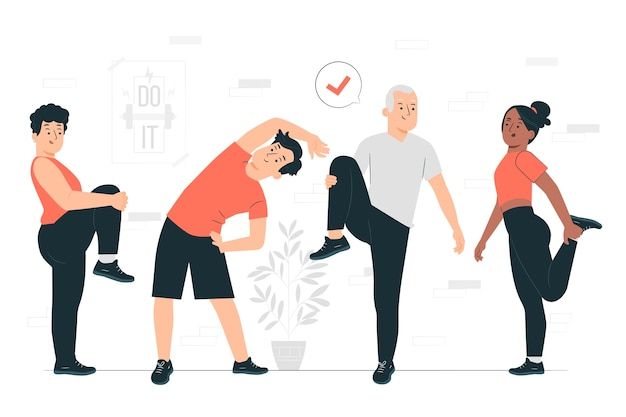Improve your well-being every day by focusing on personal growth and adopting habits that nurture your body, mind, and soul. Well-being is a broad concept that encompasses both physical and emotional health, and with consistent effort, you can experience improvements in all areas of your life. In this post, we’ll explore how small actions, like setting goals, practicing gratitude, and dedicating time to self-care, can help you achieve lasting personal growth and enhance your well-being.
In this post, we will explore some key strategies that you can implement in your daily life to improve your physical, emotional, and mental well-being. While each person is different and what works for one may not be as effective for another, these practices have proven effective for many people on their path to personal growth. Therefore, by adopting these strategies, you can experience significant improvements in your well-being.
1. Set Clear and Achievable Goals

One of the pillars of personal growth is having clear goals. Without a defined purpose or direction, it’s easy to feel lost or unmotivated. Goals act as a beacon guiding your efforts, helping you stay focused on what you truly want to achieve in life. Moreover, having well-defined goals provides a sense of direction and purpose, which is essential for personal development.
When setting goals, it’s important that they are specific, measurable, and achievable. For instance, instead of saying “I want to be happier,” a more precise goal would be “I want to practice gratitude every day.” By setting small and achievable goals, you can make steady progress, creating a sense of accomplishment that boosts your motivation to continue. Consequently, these small victories build momentum, which is crucial for sustained success.
Pros:
- Provides direction and clarity in your actions.
- Helps you stay focused and motivated.
- Gives you a sense of achievement when reaching your goals.
Cons:
- It can be challenging to know where to start.
- If goals aren’t properly set, they may lead to frustration.
2. Practice Gratitude Daily

In addition to setting goals, practicing gratitude is one of the most powerful ways to improve emotional well-being. Often, we focus so much on what we don’t have or what we lack that we forget to value what we already possess. Gratitude encourages us to look at life through a different lens, recognizing and appreciating the positive, even in difficult times. As a result, your emotional outlook will improve significantly.
You can start by practicing gratitude simply: write down three things you’re thankful for every morning or evening. As you do this, you’ll notice how your perspective shifts, and your emotional well-being improves. Research has shown that gratitude reduces stress, boosts mood, and increases life satisfaction. Therefore, incorporating this practice into your daily routine can lead to long-term improvements in your overall mental state.
Pros:
- Enhances your general mood.
- Promotes a positive mindset.
- Helps reduce anxiety and stress.
Cons:
- It can be difficult to maintain the habit initially, especially during stressful times.
- Some people may feel there’s little to be grateful for, but with practice, this changes.
3. Dedicate Time to Self-Care

Self-care isn’t just about resting; it’s about nourishing both your body and mind. Often, in the hustle of daily life, we neglect our own needs, which can lead to physical and mental burnout, directly affecting our well-being. Therefore, dedicating time to self-care is a non-negotiable habit that supports overall personal growth.
Self-care can be as simple as taking a few minutes for yourself each day, practicing a hobby, reading a book, or exercising. Additionally, don’t forget the importance of getting adequate sleep and eating healthily. Self-care is an investment in your overall well-being, helping you be more productive and balanced in your daily life. Consequently, by taking care of yourself, you improve not only your mental health but also your physical health.
Pros:
- Boosts energy and concentration.
- Reduces stress and anxiety.
- Helps maintain a balance between personal and professional life.
Cons:
- It can be hard to find time for yourself if you have a very busy schedule.
- Initially, establishing self-care habits may feel selfish.
4. Cultivate Healthy Relationships

The relationships we maintain are fundamental to our happiness and well-being. Whether with friends, family, or a partner, healthy relationships provide emotional support, joy, and a sense of belonging. However, not all relationships are healthy. For this reason, it’s important to surround yourself with people who inspire you, respect you, and support your personal growth journey.
In addition to nurturing positive relationships, it’s also crucial to learn how to set healthy boundaries. This means being able to say “no” when necessary, protecting your energy, and prioritizing your emotional well-being. Healthy relationships foster a sense of security and encourage growth, which ultimately enhances your happiness.
Pros:
- Increases happiness and life satisfaction.
- Provides an emotional support network.
- Fosters personal and professional growth.
Cons:
- Maintaining healthy relationships can be challenging if you don’t know how to set clear boundaries.
- Sometimes, you need to distance yourself from toxic relationships, which can be painful.
5. Learn Something New Every Day

Continuous learning is one of the best ways to keep our minds active and engaged. It doesn’t matter if it’s learning a new skill, reading a book, taking an online course, or simply exploring a topic of interest. The act of learning something new every day can increase your confidence and sense of accomplishment. Consequently, learning promotes both intellectual and emotional growth.
Moreover, learning doesn’t just help you grow intellectually; it can also improve your emotional well-being by giving you a sense of purpose and satisfaction. It doesn’t have to be something big or complicated—just a small effort each day to nourish your mind. As you continue learning, you’ll notice how much more open-minded and resilient you become, which supports your overall well-being.
Pros:
- Improves memory and cognitive abilities.
- Increases confidence and self-esteem.
- Promotes creativity and problem-solving.
Cons:
- It can be difficult to find time to learn something new if you have a tight schedule.
- The learning process can be challenging, especially if it’s something completely new.
6. Exercise Regularly

Exercise not only improves your physical health but also has a direct impact on your emotional well-being. Physical activity releases endorphins, which are hormones responsible for generating feelings of happiness and well-being. Even a 30-minute walk a day can make a significant difference in how you feel. Therefore, incorporating exercise into your routine is a powerful tool for improving both your physical and emotional health.
In addition to improving your mood, regular exercise reduces stress, increases energy levels, and enhances focus. Incorporating physical activity into your daily routine is one of the most effective habits to improve your overall well-being. In fact, exercise has been linked to reduced levels of anxiety, depression, and even chronic pain.
Pros:
- Increases energy levels.
- Enhances mental and emotional health.
- Helps reduce stress and anxiety.
Cons:
- Maintaining a consistent routine can be challenging.
- Over-exercising can lead to injuries or burnout if not done correctly.
Conclusion
Personal growth and well-being are ongoing processes that take time, effort, and dedication. However, by incorporating small, healthy habits into your daily life, you will not only improve your physical and emotional well-being but also be on the path to greater personal growth. Every step you take to improve your well-being is a step toward a more fulfilled and happier life. Consequently, investing in your personal growth today will benefit you tomorrow.
Remember, there is no one-size-fits-all formula for personal growth. Each person has their own path, but the most important thing is to commit to yourself and be willing to improve every day. Start today by incorporating these habits into your life and experience the positive changes you can create.





